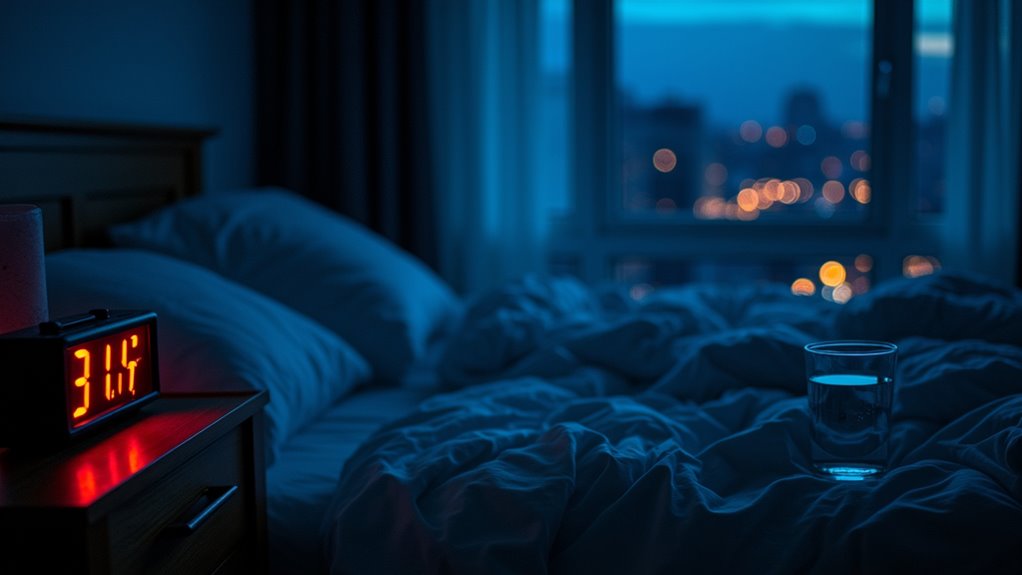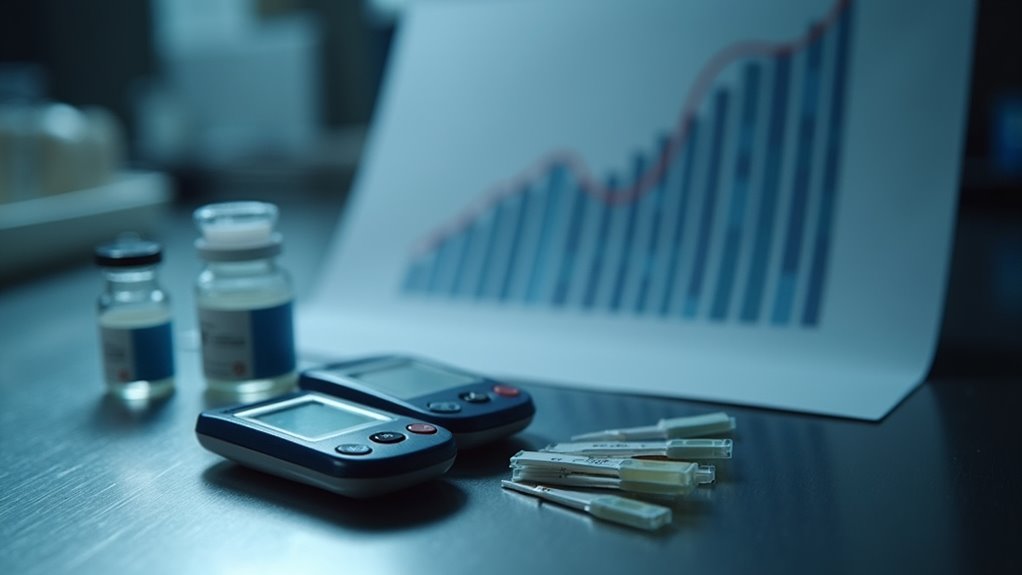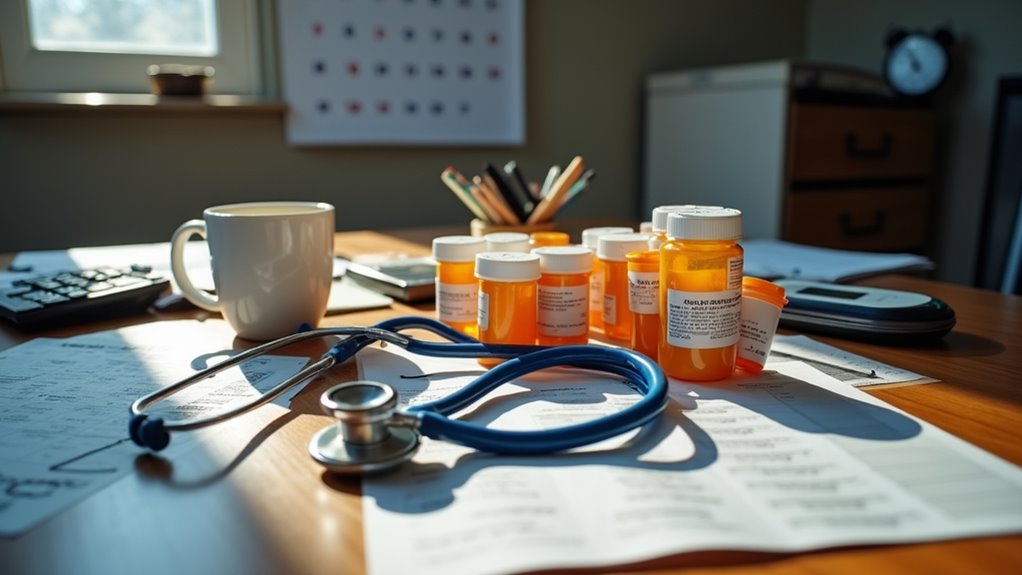While many people dismiss sleep as simply a luxury, research paints a far more alarming picture. Scientists have discovered that skimping on shut-eye isn’t just about feeling groggy—it’s setting off a cascade of health disasters. Too little sleep, or even too much, increases your risk of heart disease and stroke. Period. And that’s just the beginning.
Ever wonder why you raid the fridge at midnight? Blame your messed-up hormones. Sleep loss throws leptin and ghrelin—the hormones controlling hunger—completely out of whack. When you’re tired, you eat more junk, move less, and your metabolism slows down. Perfect storm for packing on pounds. Your body literally can’t process insulin properly without adequate rest, pushing you toward diabetes. The pancreatic feedback system becomes disrupted, leading to unstable blood sugar levels. Fantastic.
The brain takes an especially brutal hit. Night after night of poor sleep leaves a calling card: white matter lesions, fundamentally the brain’s version of aging spots. Not cute. These disruptions impair memory, concentration, and cognitive function. Your ability to think clearly? Gone. Your quick wit? Vanished.
And while you’re struggling through your day in a mental fog, something more sinister might be happening. A major Yale study of nearly 40,000 middle-aged adults found that suboptimal sleep duration significantly increases the risk of silent brain injuries that lead to stroke and dementia. During deep sleep, your brain normally clears out beta-amyloid, a protein linked to Alzheimer’s disease. Miss that vital cleaning cycle and these proteins accumulate. Studies using PET scans show the frightening buildup in sleep-deprived brains. The connection is clear and terrifying.
Your immune system suffers too. Sleep deprivation reduces antibodies and protective substances, leaving you vulnerable to every bug going around. Getting less than six hours of sleep each night increases your risk of heart attack by about 20 percent. Respiratory conditions worsen when breathing patterns get disrupted during poor sleep. It’s a vicious cycle.
The evidence is overwhelming. Sleep isn’t optional—it’s critical maintenance your body demands. The consequences of ignoring this basic need extend far beyond feeling tired. They reach into every system of your body, setting the stage for chronic disease. Sleep well or pay later. That’s not dramatic; it’s science.





